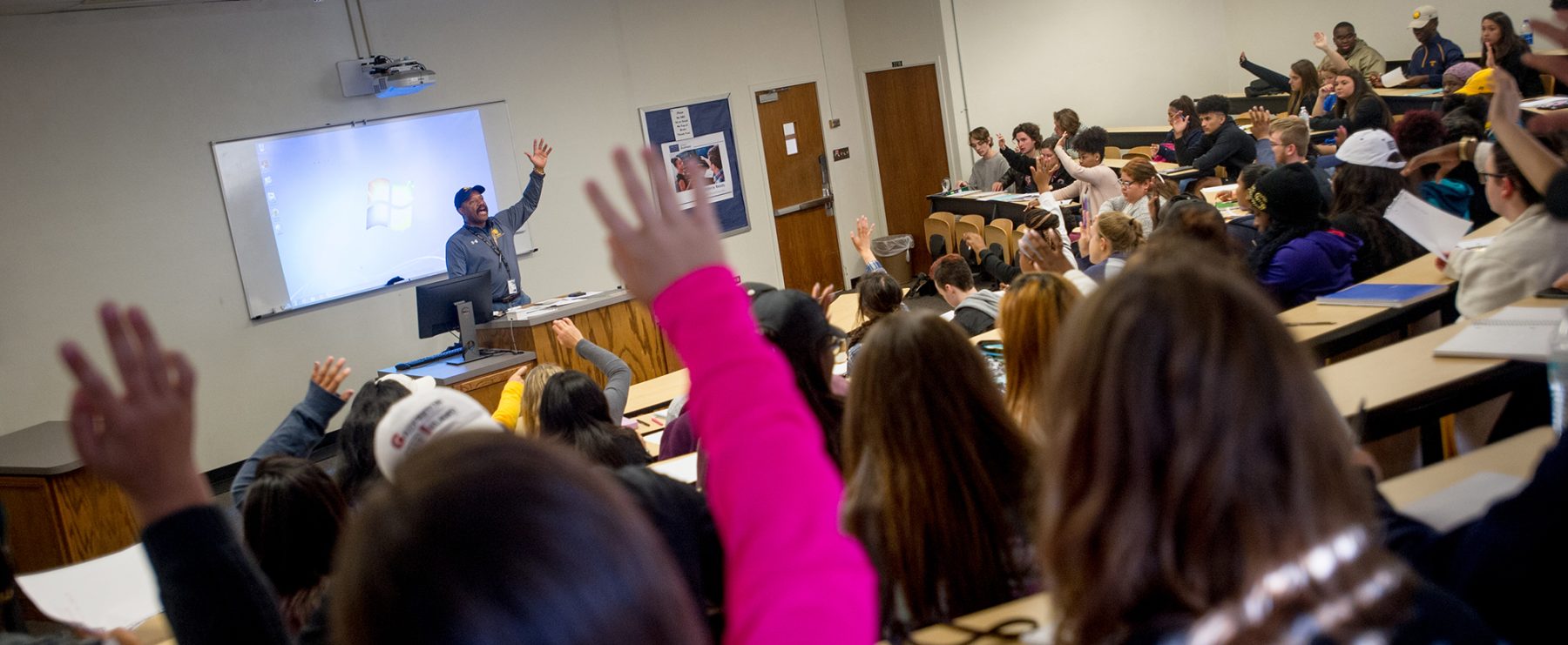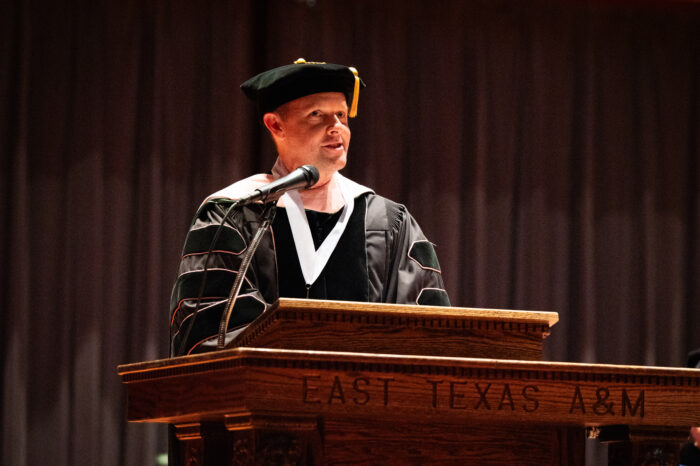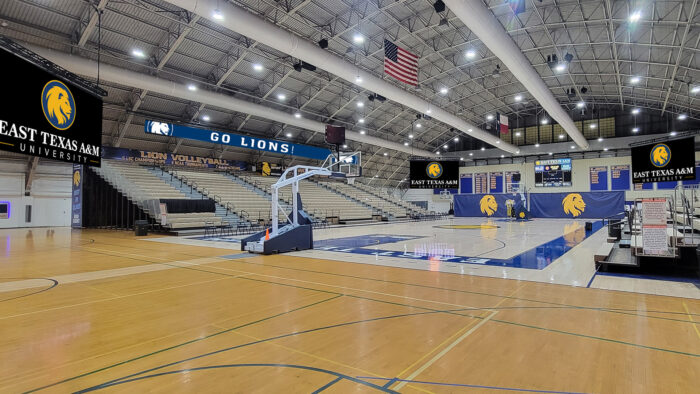
Signature Courses at A&M-Commerce Set the Stage for Student Success
The College of Innovation and Design at Texas A&M University-Commerce has announced its new slate of signature course offerings for the upcoming fall and spring semesters.
With an emphasis on student engagement and retention, signature courses are about more than completing a class to earn a degree. These unique courses encourage students to explore academia while getting involved with the university community and learning about themselves and their future opportunities.
Signature courses allow faculty to highlight their knowledge and passion for a topic of their choosing while providing an opportunity for first-year students to acclimate to the higher education environment.
“The signature courses are meant to be outside-the-box passion courses that aren't part of the traditional curriculum,” said Yvonne Villanueva-Russell, Ph.D., who serves as dean of the College of Innovation and Design. “We want students to be intellectually curious at the beginning of their college experience because there's plenty of time later for them to focus on their specialty and career as they progress through their degree plan.”
Past signature courses have included topics such as, “Star Wars: The Course Awakens,” taught by John Smith, Ph.D.; “Must Love Dogs,” led by Sandy Kimbrough, Ph.D.; and “The Wizarding World of Harry Potter,” taught by George Swindell.
Classes slated for the Fall 2022 semester include:
- Business, Society and Unfettered Thought. Taught by Guclu Atinc, Ph.D., the course will examine the critical thinking skills needed to manage the increasingly integrated, interdependent and complex relationships between business and society.
- The Graphic Past. Cynthia Ross, Ph.D., will guide students through an exploration of award-winning graphic novels, their depiction of four key historical events and related themes in world history.
- Learning How to Think Critically. Taught by Brandon Randolph-Seng, Ph.D., students will investigate the effects of attitudes, values and logical fallacies on critical thinking and problem-solving.
- #LivingYourBestLife. Sharonda Pruitt, Ph.D., encourages students to explore their personal history, where they are currently and where they want to go beyond college.
- Great Texts and Great Conversations. Mark Menaldo, Ph.D., leads students through guided reading and discourse to dive deep into perspectives and thoughtful discussions related to a timeless core text selection.
Villanueva-Russell said the courses also introduce first-year students to professors who often only teach upper-level courses, like Mark Menaldo, Ph.D., associate professor and head of the Department of Liberal Studies.
“Signature courses improve student retention by fostering an environment where students can build relationships with their professors, their peers and the academic theme,” Menaldo said. “What matters most is that they know we are here for them. They have someone they can visit with and talk to; someone who cares about their personal and academic development.”
Menaldo added that signature courses are helping students engage after the pandemic.
“Many students in the post-pandemic era have grown accustomed to online learning and only interacting through their devices,” Menaldo said. “Signature courses help students get back to being students by inspiring curiosity and creating face-to-face interaction and involvement.”
Students also benefit from a peer mentoring class included in their signature course. The mentoring classes incorporate Stanford University's Design Your Life curriculum, a toolkit for students to learn how to plan and navigate their first four years of college and the next four years after graduation.
Peer mentoring classes are taught by a diverse set of upperclassmen, from Honors College students to those who can share their valuable experiences after climbing back from academic probation. Students learn self-presentation skills and receive guidance through the hidden curriculum of higher education, such as the meaning of various acronyms and when to register.
Sierra Jones, assistant director for first-year initiatives at A&M-Commerce, said peer mentors connect with first-year students on a different level.
“Our peer mentors are friendly faces on campus who strive to help first-year students succeed and enjoy their time at A&M-Commerce,” Jones said. “They attend football games together; they eat in the cafeteria together, and the mentors host office hours where they're available to advise or chat.”
Signature courses culminate with The Lionizing, a dynamic event at the end of each semester where students team up to present what they've learned in their courses. Past presentations have included performances, digital media, posters and elaborate dioramas.
“Our signature courses have seen great success. They're unlike anything you'll find at other universities,” Villanueva-Russell said. “It's something that makes us very unique.”
Villanueva-Russell believes one reason signature courses are successful is that they're part of a larger, first-year initiative called Transforming Relationships and Academic Connections (TRAC).
First-Year TRAC implements research suggesting that first-year students who are engaged with their peers, professors and campus community are much more likely to be successful in their higher education experience. They're also more likely to remain engaged after graduation.
“They have better employment outcomes and they're better alumni,” Villanueva-Russell said. “They want to give back. They want to attend homecoming. They want to come to our football games and other events.”
“And that's really the complete package that we're striving for,” she concluded.
View a full list of signature courses at tamuc.edu/First-Year-TRAC. Learn more about the College of Innovation and Design at tamuc.edu/CID.
More Press Release
View All Press Release
Newest Regents Professor Honored at Annual Convocation
East Texas A&M University Regents Professor of Music Dr. Brian Zator was officially recognized for his outstanding achievement at the university's annual Spring convocation.

East Texas A&M Installs State-of-the-Art Video Boards in the Field House
East Texas A&M University enhanced the in-venue experience inside the Hunt Regional Healthcare Court in the Field House this spring by installing four videoboards and two ribbon boards.

Fuseini Selected as SLC Men’s Track Athlete of the Week for Third Time in 2025
East Texas A&M University track and field sprinter Ibrahim Fuseini has been named the Southland Conference Men's Track Athlete of the Week.


